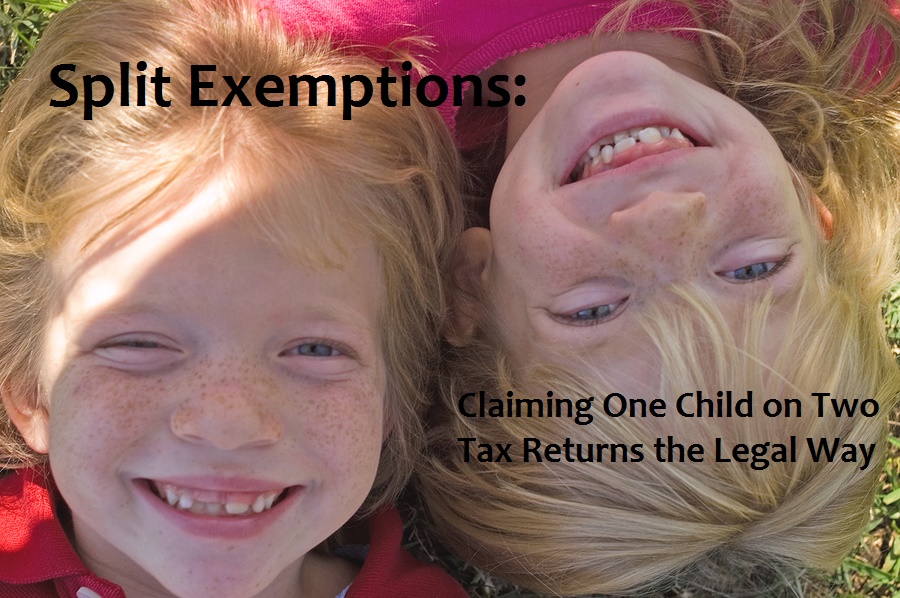
No matter how good a “Daddy” is, the IRS has very strict rules about who can claim the EIC tax credit.
Short answer: No. Do not let your boyfriend claim your child that is not his for the Earned Income Tax Credit.
Long answer: Noooooooooooooo! Sorry about the bad joke. But really, no he can’t and here’s why:
First, and most importantly, it’s against the law. Seriously – claiming a child that you don’t have a right to claim on your tax return is income tax fraud and that’s a federal crime.
But how would he get caught? Good question. The most likely way he’d get caught is if someone else tried to claim your child on their tax return, like the child’s real father or a grandparent. Someone might have a problem with you or him and turn you in to the IRS. It’s one of the most common questions I see on the internet: “How do I turn someone in?” I’ve worked on a couple of cases where an older child has accidentally turned someone in by filing paperwork for school which somehow got into IRS records. You don’t want to take the risk.
But the most dangerous person as far as your boyfriend is concerned is you. Let’s say you decide to let your boyfriend claim your child and claim the EIC tax credit because it works out to be more money if he does it. You’re breaking the law too, but when push comes to shove you can break into tears and say he forced you etc., etc. It’s not against the law to not claim your child on your tax return, and proving that you “conspired” with him to commit tax fraud would be hard to do. So let’s say that the boyfriend dumps you and goes out and buys a nice engagement ring for his new girlfriend with that tax refund. I’m guessing that would make you hopping mad, right? Furious! You want to get even, don’t you? What better way to get even with that scumbag than to report him to the IRS. You see why he should be afraid? Very afraid!
So what could happen to my boyfriend if he did get caught? The maximum EIC for one child is $3050 ($5036 for two, and $5,666 for three.) First, he’d have to pay that back. Let’s say we’re just talking about one child, he’ll have to pay back $3050 right off the bat. Then he’d also have to refund the $1,000 child tax credit, so now we’re up to $4050. Now he’ll also have lost the head of household status which gave him a lower tax rate plus he’s lost the exemption so we’re looking at maybe $5,000 (or more if we’re talking about more children). Then the IRS will tack on fines, another 25% or $1250 for late payment fees, and most likely another 20% or $1,000 for under-reporter penalties so you’re looking at about $7250 in taxes owed. Ouch!
It’s also possible that he could be criminally prosecuted. Personally, I have never worked an EIC case that has gone on to the criminal division, but it does happen. What good is your boyfriend to you if he’s sitting in jail?
Don’t create problems for yourself by committing tax fraud. It seems like easy money and the temptation is great. You probably even know people who’ve done it and never had any problems. But if you want to feel safe and secure and get a good night’s sleep, file a correct and proper tax return.
You may also be interested in these posts:
My Ex Claimed My Kid: Now What Do I Do?
Eight Basic Rules to Qualify for the Earned Income Tax Credit
_______________________________________________________________________
If you need an answer right away, here are some links that might help.
How to find free tax preparers
j
How to find your local IRS office



